Mountain Laurel Fertilizer Guide: When To Feed Mountain Laurels
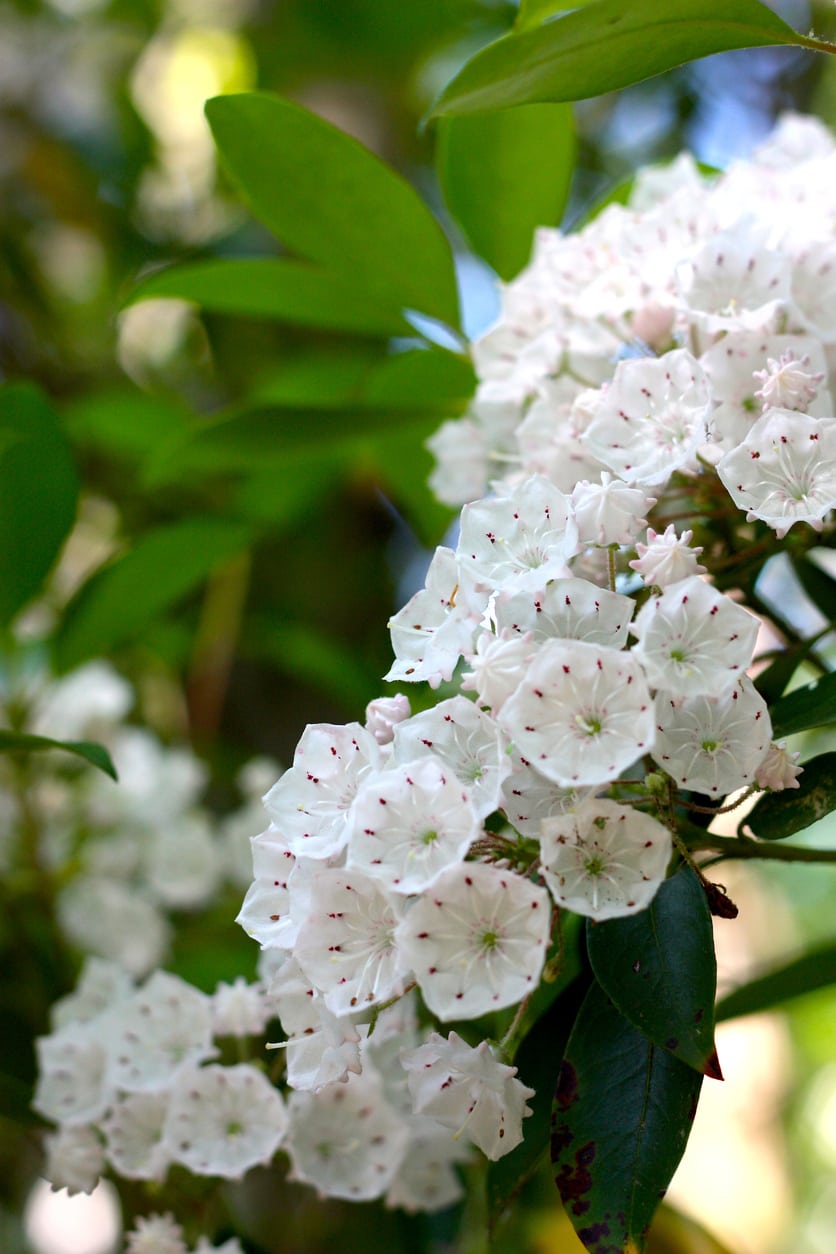

Mountain laurel (Kalmia latifolia) is a lush evergreen shrub with stunning flowers. It’s native to the eastern half of the country and, as a native, is an easy-care plant to invite into your yard in mild regions. Although these are native shrubs, some gardeners feel that they grow better if you fertilize them. If you’d like to know how to fertilize mountain laurels or what to use for mountain laurel fertilizer, read on.
Feeding a Mountain Laurel
Mountain laurels are broad-leafed evergreens that grow in the wild as multi-stemmed shrubs. The leaves, like holly leaves, are shiny and dark. And the branches of mature laurels are delightfully gnarled. Mountain laurel produces flowers in late spring or summer. The blooms range from white to red and are an essential part of the woodlands in the East. They grow in zones 4 to 9, and look beautiful cultivated with rhododendrons or azaleas. Is feeding a mountain laurel essential to its growth? Although the species grows just fine in the wild without care, fertilizing mountain laurel cultivars may promote thicker growth and healthier leaves. But you must not feed these plants too often or too much.
How to Fertilize Mountain Laurels
Some gardeners don’t fertilize their mountain laurels because these native plants grow well on their own. Others give the shrubs mountain laurel fertilizer for that extra little push. If you are wondering how to fertilize mountain laurels, the answer is to do it lightly once a year. As to what fertilizer, select a granular product for acid-loving plants and scatter a handful or two on the soil near the plant.
When to Feed Mountain Laurels
If you are thinking of feeding a mountain laurel, the “when” is just as important as the “how.” So the next question is: when to feed mountain laurels? Do the deed in late fall or early spring. When you are feeding a mountain laurel, remember to feed the plants sparingly. Be sure not to let the mountain laurel fertilizer touch the foliage or stems. While some gardeners also use liquid fertilizer every six weeks during growing season, it isn’t really necessary. According to other experts, fertilizing a mountain laurel after June causes abundant foliage growth at the price of blooms.
Gardening tips, videos, info and more delivered right to your inbox!
Sign up for the Gardening Know How newsletter today and receive a free copy of our e-book "How to Grow Delicious Tomatoes".

Teo Spengler is a master gardener and a docent at the San Francisco Botanical Garden, where she hosts public tours. She has studied horticulture and written about nature, trees, plants, and gardening for more than two decades. Her extended family includes some 30 houseplants and hundreds of outdoor plants, including 250 trees, which are her main passion. Spengler currently splits her life between San Francisco and the French Basque Country, though she was raised in Alaska, giving her experience of gardening in a range of climates.
-
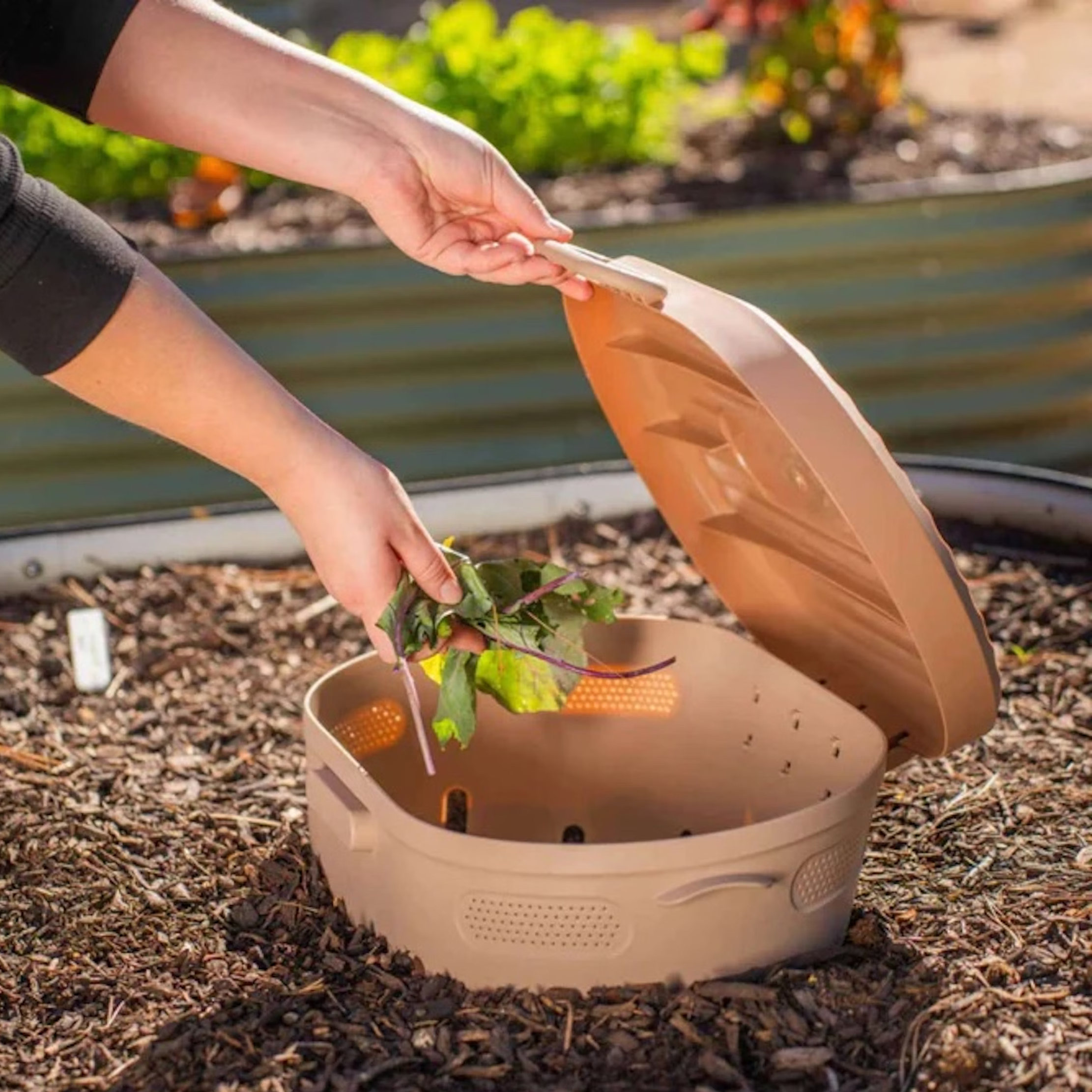 Try The Trend – Turn Any Bed Into A Keyhole Garden With This Clever In-Ground Composter
Try The Trend – Turn Any Bed Into A Keyhole Garden With This Clever In-Ground ComposterKeyhole gardening is an efficient and sustainable practice that saves space. Get started on this DIY project quickly and easily with an in-ground composter.
By Bonnie L. Grant
-
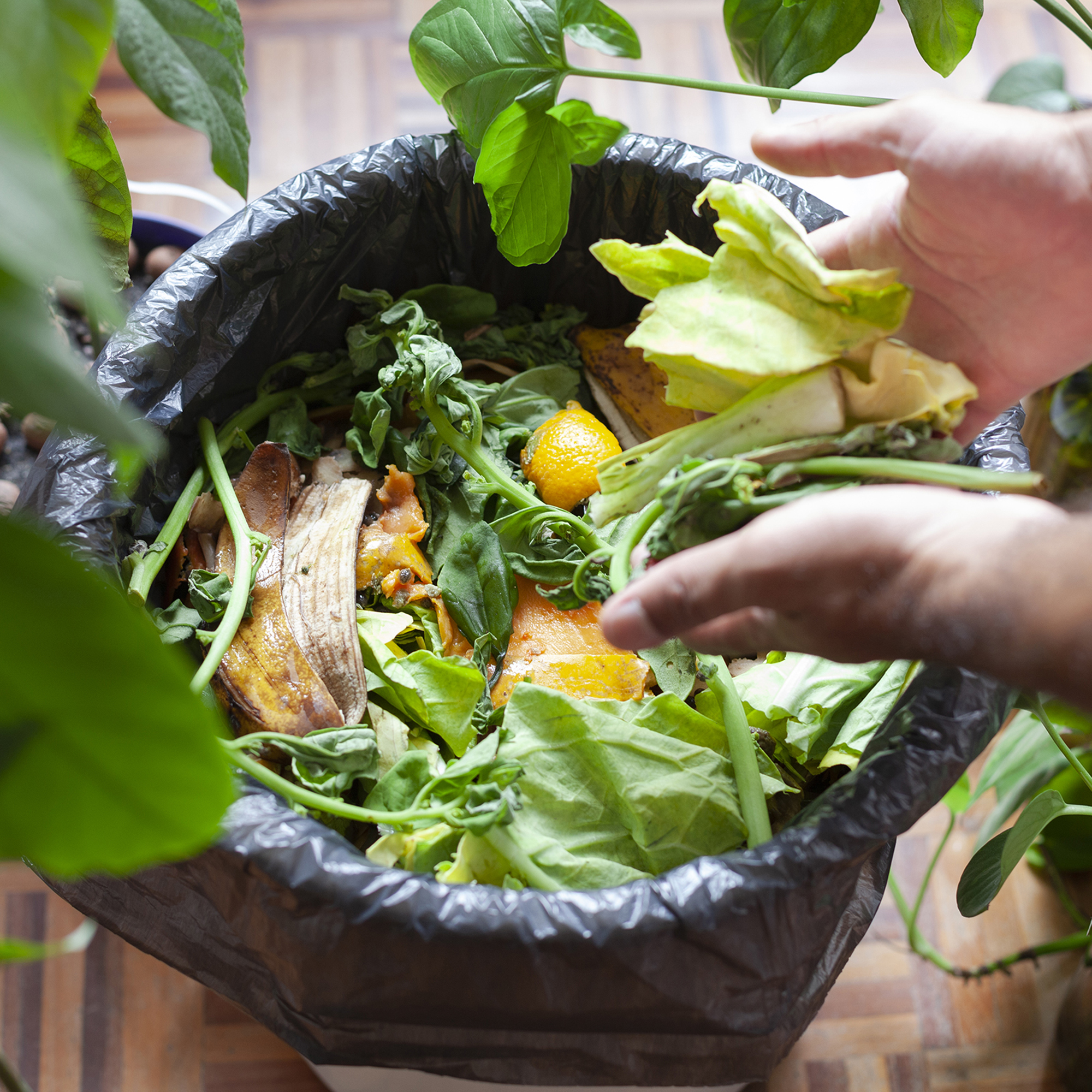 4 Superfast Composting Methods: Turn Waste Into Garden Gold In 30 Days Or Less
4 Superfast Composting Methods: Turn Waste Into Garden Gold In 30 Days Or LessTry the fastest composting methods to turbocharge your pile and transform kitchen scraps and garden waste into finished compost in just a few weeks.
By Mary Ellen Ellis
-
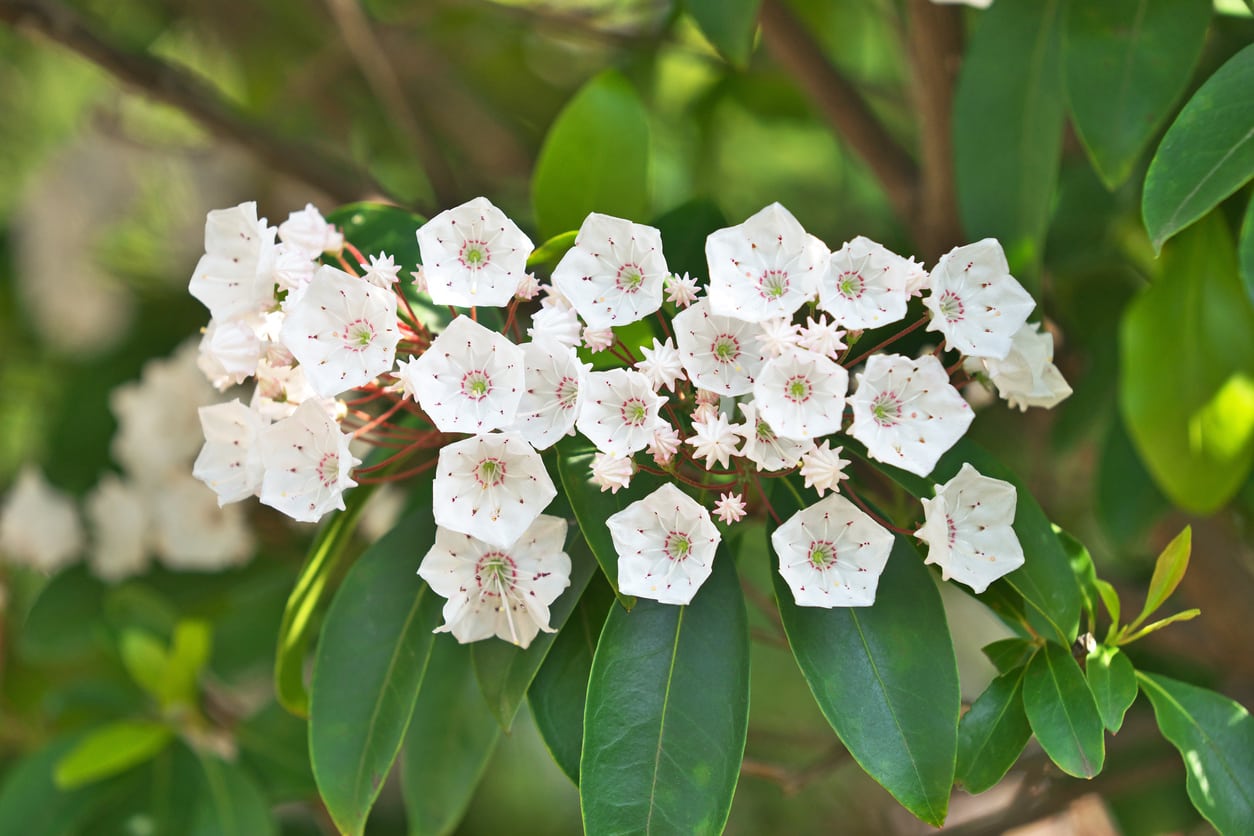 Potted Mountain Laurel Care – Learn About Container Grown Mountain Laurels
Potted Mountain Laurel Care – Learn About Container Grown Mountain LaurelsMountain laurel shrubs are usually used as landscape plants, and can often be seen blooming in dappled shade under trees and taller shrubs. But can you grow mountain laurel in a pot? Click here to learn more about caring for mountain laurel in containers.
By Liz Baessler
-
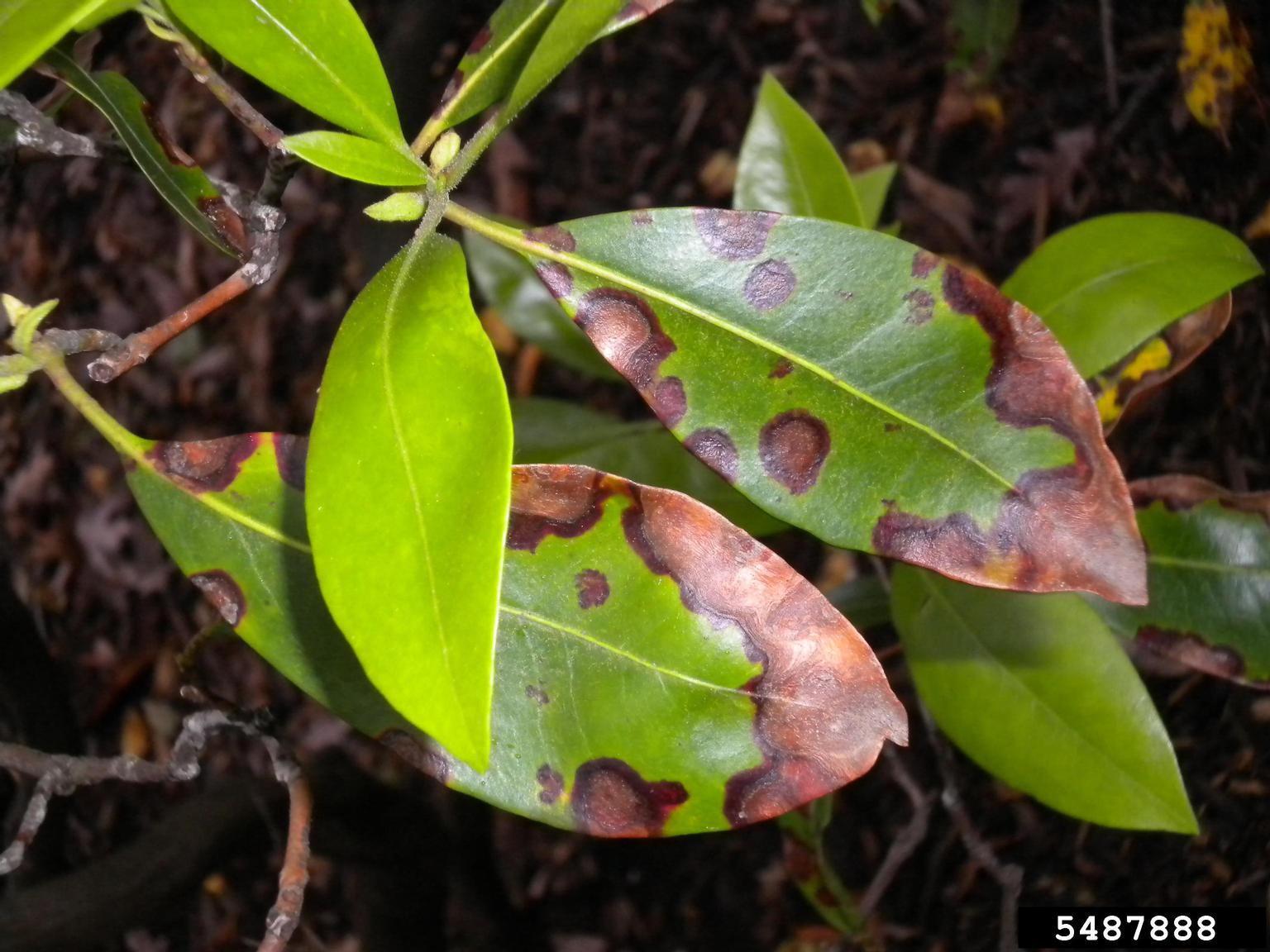 Mountain Laurel Leaves Are Browning – Why Are Mountain Laurel Leaves Turning Brown
Mountain Laurel Leaves Are Browning – Why Are Mountain Laurel Leaves Turning BrownMountain laurel usually remains green year round, so brown leaves on mountain laurels can be a sign of trouble. Determining the reason for brown mountain laurel leaves can be challenging and involves careful detective work. The following information may help.
By Mary H. Dyer
-
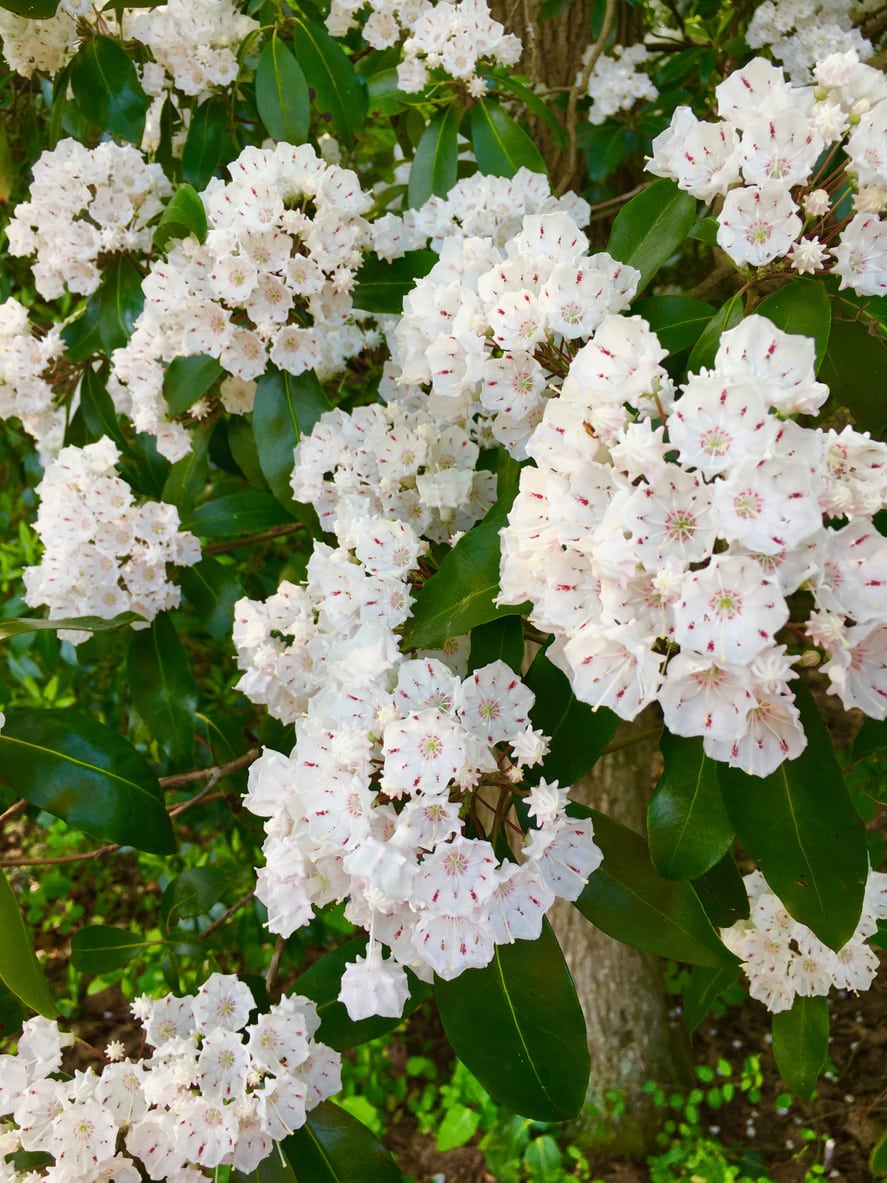 Mountain Laurel Trimming Tips: How To Prune Mountain Laurel Bushes
Mountain Laurel Trimming Tips: How To Prune Mountain Laurel BushesGrowing to a general height and width of five to eight feet (1.5 to 2 m.), cutting back mountain laurels may occasionally be necessary to fit the space they are in. To learn how to prune mountain laurel shrubs, click on this article for more information.
By Darcy Larum
-
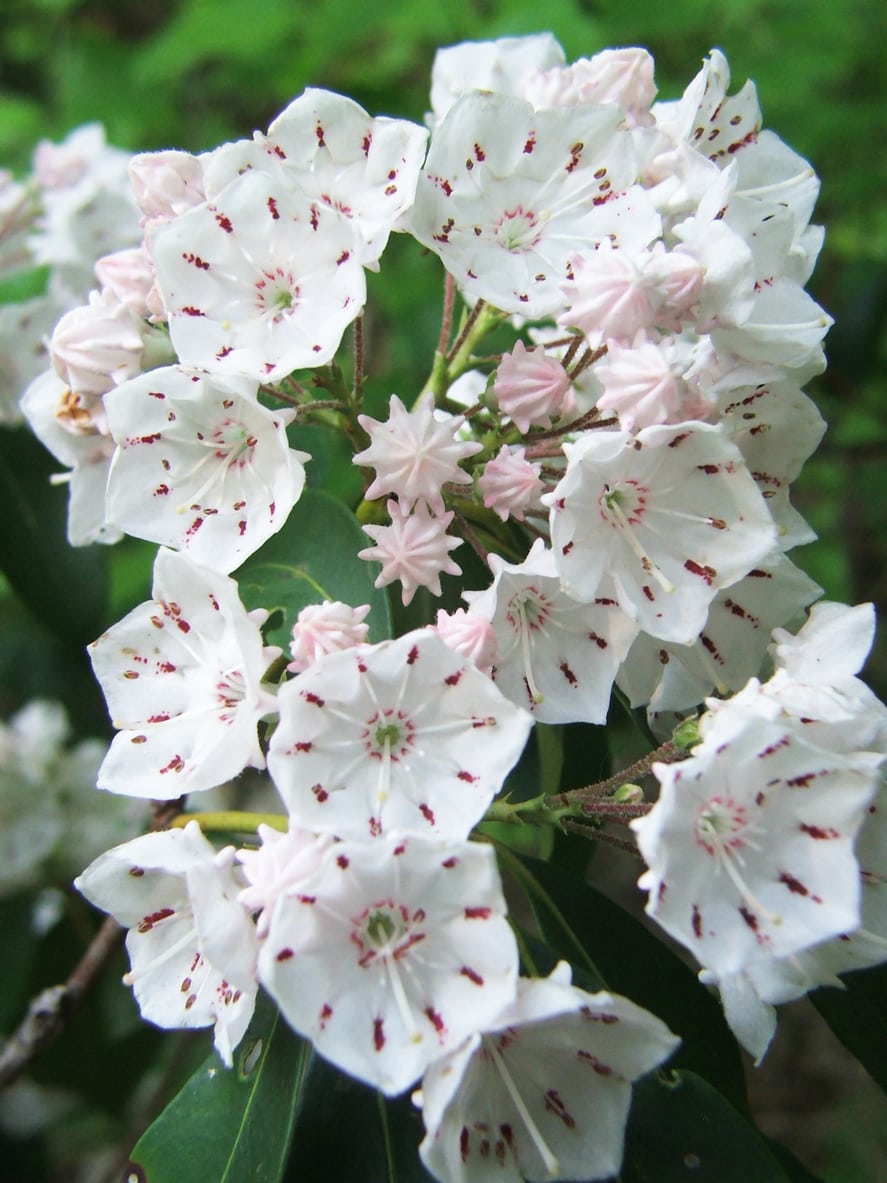 Cuttings From Mountain Laurel Shrubs: How To Root Mountain Laurel Cuttings
Cuttings From Mountain Laurel Shrubs: How To Root Mountain Laurel CuttingsMountain laurels grow happily reproduce from seeds, but these won’t reliably reproduce hybrid cultivars. The only way to be sure of clones is with cutting propagation. Growing cuttings from mountain laurel is possible, but not always easy. Learn more here.
By Teo Spengler
-
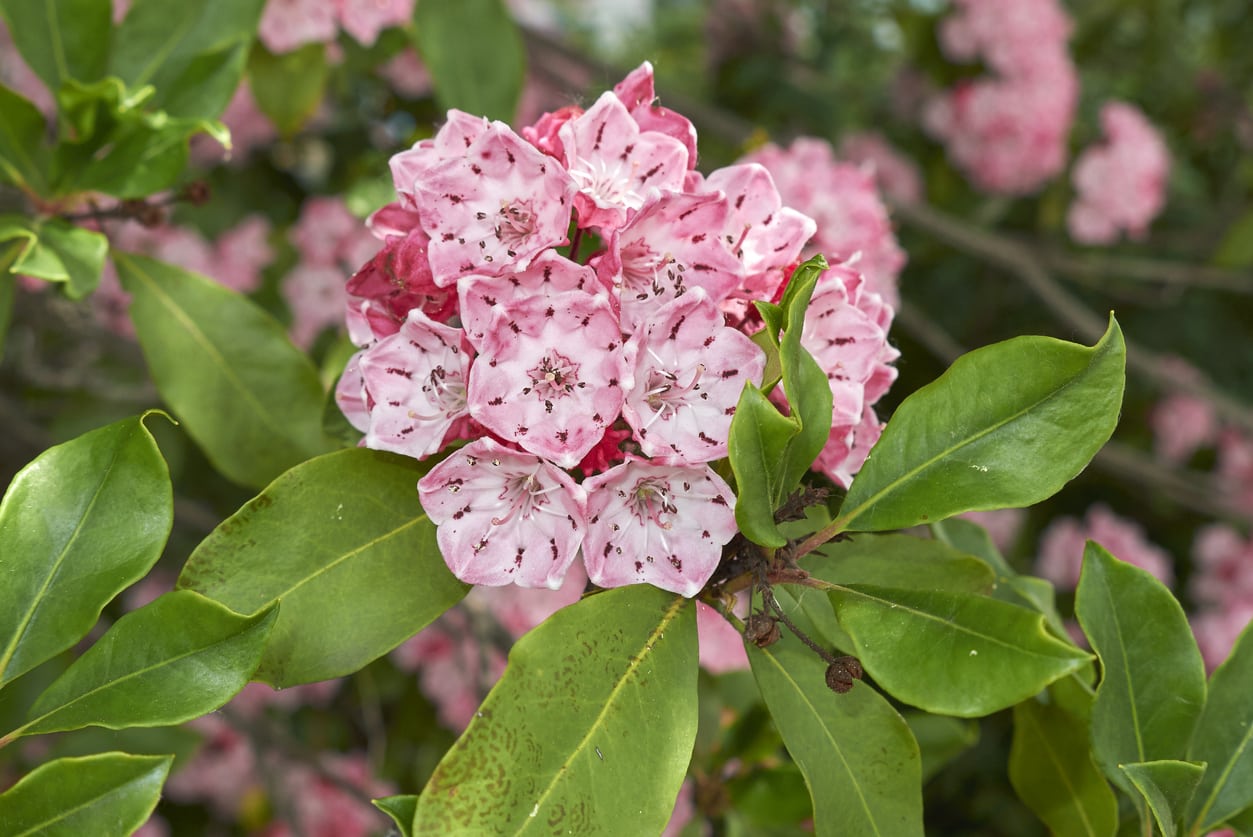 Mountain Laurel Losing Leaves – What Causes Leaf Drop On Mountain Laurels
Mountain Laurel Losing Leaves – What Causes Leaf Drop On Mountain LaurelsPlants lose leaves for a variety of reasons. In the case of mountain laurel leaf drop, fungal, environmental and cultural issues may be the cause. Figuring out which is the hard part but, once you do, most fixes are fairly easy. This article can help.
By Bonnie L. Grant
-
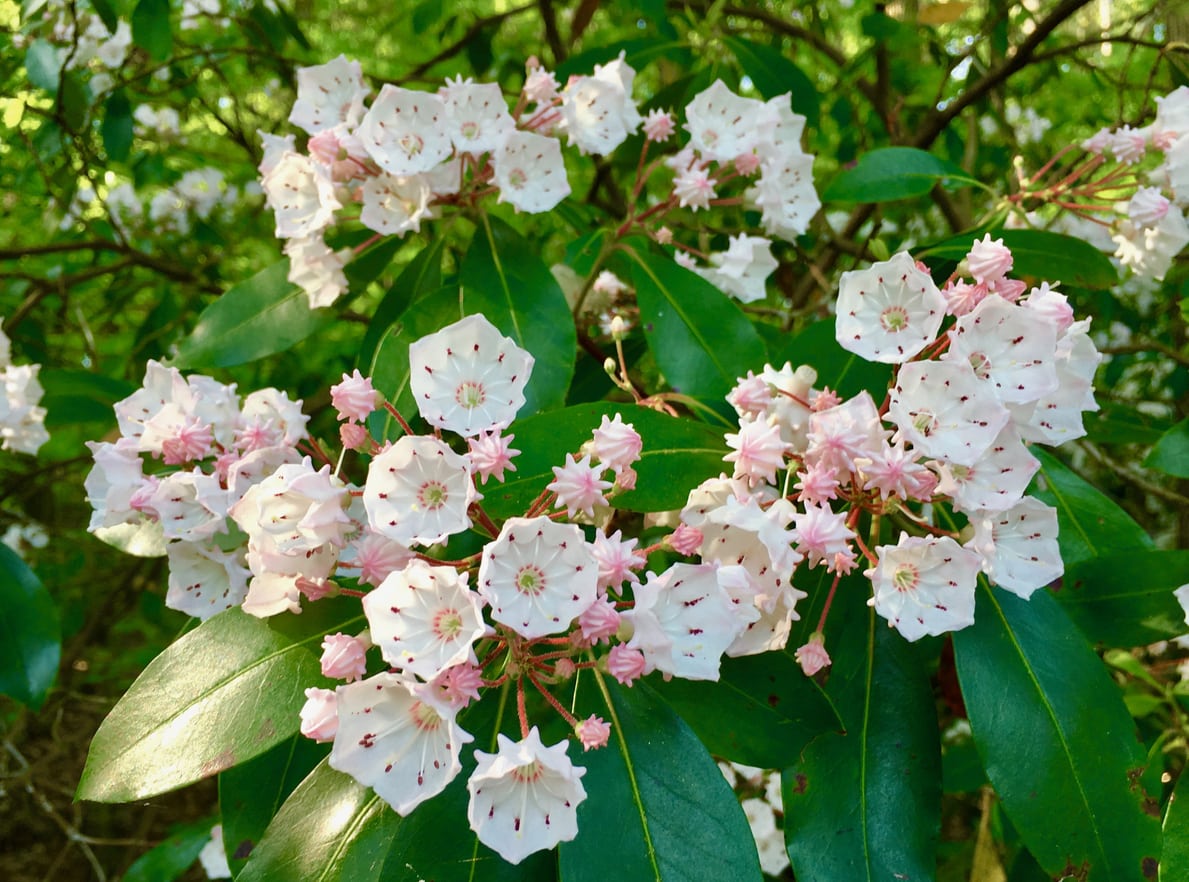 Mountain Laurel Irrigation: How To Water A Mountain Laurel Shrub
Mountain Laurel Irrigation: How To Water A Mountain Laurel ShrubA sometimes overlooked North American native, mountain laurel is a very hardy, shade tolerant shrub that produces beautiful, showy flowers where many other plants will not. Learn more about mountain laurel water needs in this article.
By Liz Baessler
-
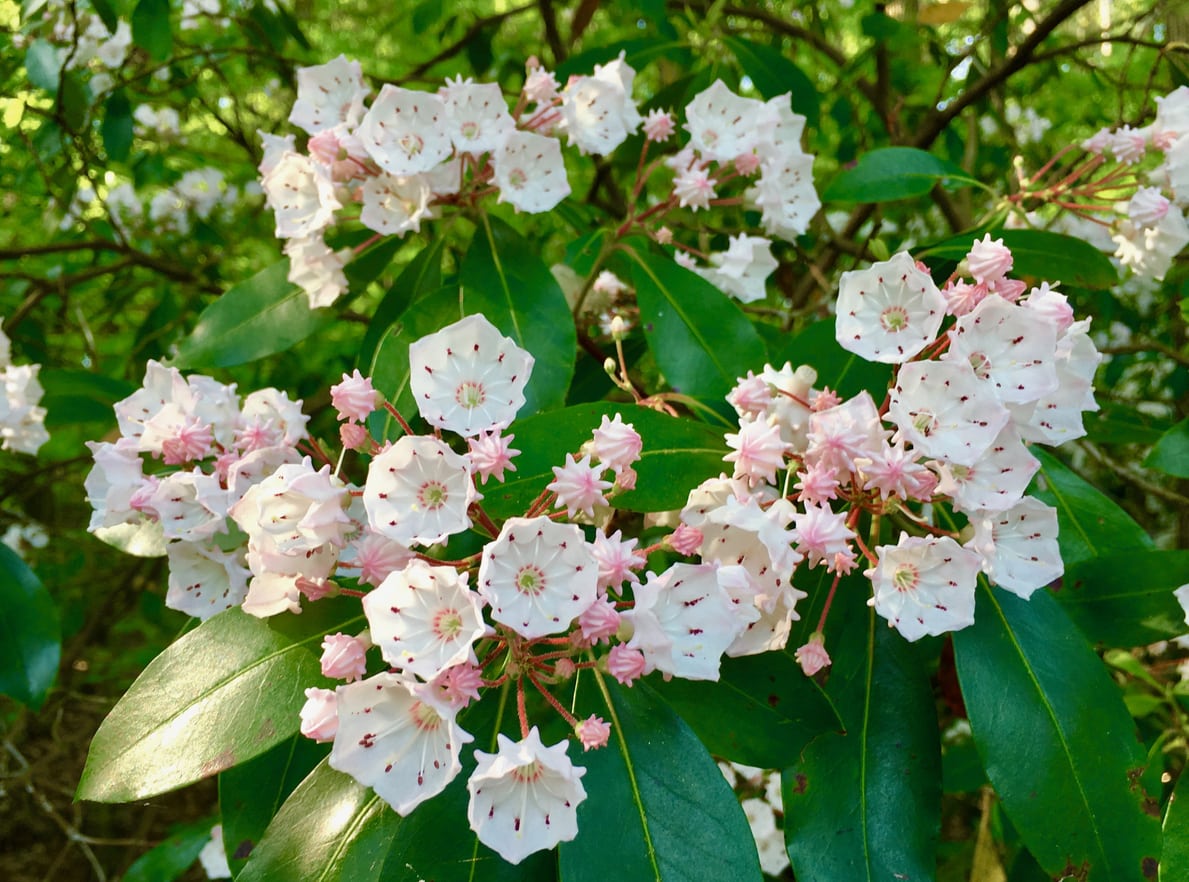 Growing New Mountain Laurels: Learn About Mountain Laurel Propagation
Growing New Mountain Laurels: Learn About Mountain Laurel PropagationPropagating from plants in your yard is cheaper and more rewarding. Growing new mountain laurels can be done by a couple of accepted methods: by seed and by cuttings. Find out how to propagate mountain laurel shrubs in this article.
By Mary Ellen Ellis
-
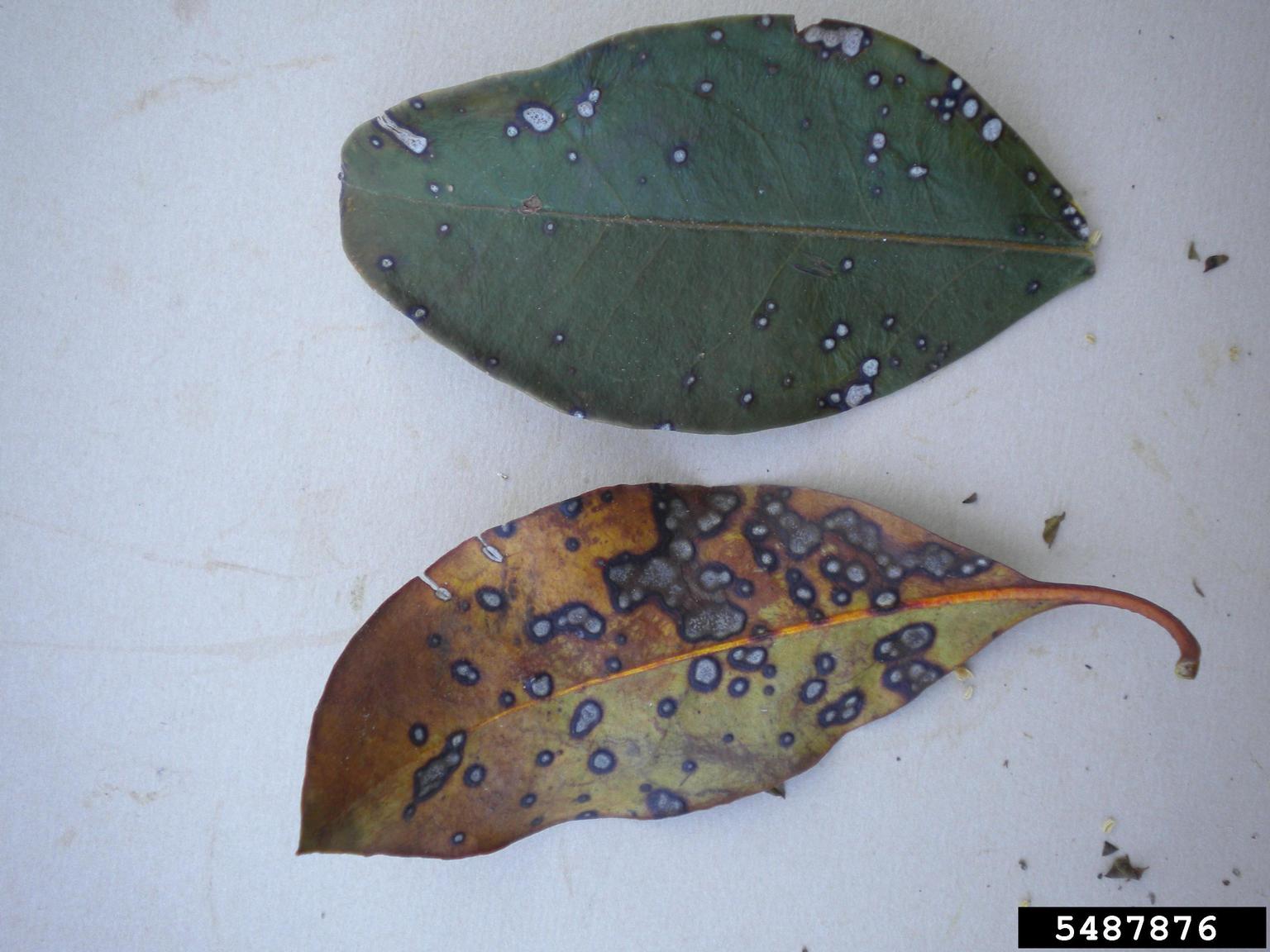 Diseases Of Mountain Laurel Bushes: What’s Wrong With My Mountain Laurel
Diseases Of Mountain Laurel Bushes: What’s Wrong With My Mountain LaurelIf your mountain laurel has leaf spots or chlorotic foliage, you may be wondering, “Is my mountain laurel sick.” Like all plants, mountain laurels have their share of diseases. It is important to learn the signs of these diseases in order to treat them. This article will help.
By Amy Grant